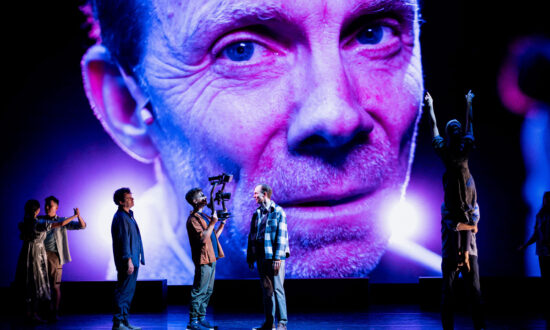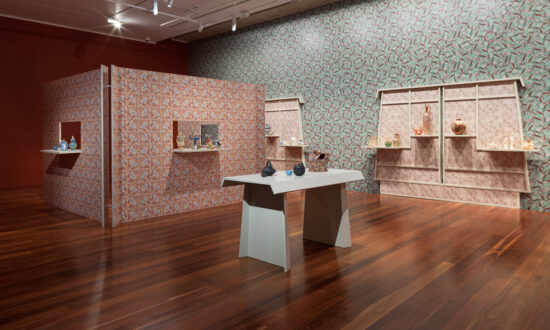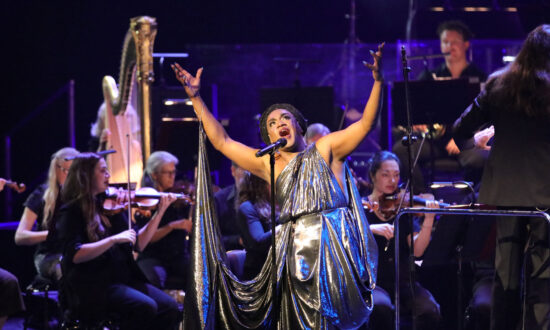A session on the complexities of political biographies – chaired by former Victorian premier Steve Bracks, who wrote his own – moved quickly to the lauded biography of former Labor prime minister Bob Hawke, written by his lover and later wife Blanche D’Alpuget.
Nothing came near it for drama and romance, before a word was even written.
“The fact is, they had been lovers, he proposed marriage, then he reneged, she was shattered, then they drifted apart; a biographer was at work but Bob was worried and Blanche said, ‘Well, maybe I could do one’,” author and academic Professor Chris Wallace said during the Adelaide Writers’ Week session titled History’s Rough Draft.
Wallace, whose latest book investigates the past 100 years of political biography, said D’Alpuget knew her subject well and got the biography right by generating insights into Hawke that she shared with readers.
Once they got back together as biographer and subject, they resumed a secret sexual relationship, although D’Alpuget was involved with someone else and Hawke was married to Hazel. But Wallace praises D’Alpuget’s old-fashioned approach, which was to go back to the beginning, starting with Hawke’s family, neighbours and school mates, which uncovered family trauma that Hawke had avoided as an adult, and which contributed to his drinking.
“Almost literally, Blanche has Bob on the couch and she brings to him these very traumatic stories from his childhood, brings Bob to face them and come to grips with them,” she said.
“And, in essence, she dynamically crafts a psychological platform that Hawke uses to give up drinking and become Australia’s prime minister. It is a sensation. Magic can happen in biography.”
Wallace, who grew up in South Australia and wrote a biography of cricket hero Donald Bradman, is notable for spiking a draft and returning an advance for a book on Julia Gillard, then Australia’s first female prime minister. She was worried it would be misused and twisted by Gillard’s enemies in her own party as well as the Liberal opposition.
“It was an unwillingness to allow my ethical, balanced and nuanced work to be turned into weapons against a serving Labor prime minister, Australia’s first woman prime minister,” she said. “It underlined what totally potent packages biographies of serving politicians can be.”
Today, she would approach a Gillard book slightly differently by writing a collective biography that included other prominent Labor women, and interrogating the question of why Gillard, in particular, rose to the top.
“I would look at the women who came in, in that extraordinary intake in 1998, and ask why was it Julia Gillard rather than someone else from her female class of ’98ers?” Wallace said. “Like Nicola Roxon, first in her class at Melbourne Law School, or the extraordinary Tanya Plibersek, who is a current Cabinet minister and batting hard.”
Wallace also singled out for mention two biographies of former prime minister Gough Whitlam, one written by press gallery doyen Laurie Oakes, which were hugely important and which took the place of historians as the chief record of the times.
“Laurie Oakes… with that big Oakes brain puzzling over and working out this extraordinary politician Gough Whitlam; it was like he was from Mars, so dramatic a presence was he in the Labor Party,” Wallace said. “How many Australian prime ministers are pretty good at classical Greek? Modern Greek, sure, but Gough was one out of the box.”

Audience members at Adelaide Writers’ Week. Photo: Andrew Beveridge
The body count was higher at a Writers’ Week session on Dangerous Minds, which brought together popular names in crime writing, including Australia’s Chris Hammer, whose career took off when he launched himself by accident into a tidal wave of demand for rural noir.
Hammer said he wrote his first book, Scrublands, a thriller about a murderous priest in a drought-stricken town, while oblivious to the runaway success of the thriller The Dry, by Melbourne writer Jane Harper (whose book became a film and who will speak at Writers’ Week on Thursday).
“Not only had I not read it, I was unaware of it as I finished Scrublands,” says Hammer, who confessed to killing off characters just to get rid of them.
When a friend told him every publisher would be after his book because of The Dry, Hammer had to ask what it was.
“Well, how lucky was I that at the time every other publisher in Australia was looking for something similar – it was like someone had just published Harry Potter and everyone wants a wizard at a Hogwarts school,” Hammer said.
He noted that some exceptional books came out in the past year that were marketed as outback noir, although they were rarely set in the outback and were rarely noir. “They’re crime books set in the Australian bush.”

Get InReview in your inbox – free each Saturday. Local arts and culture – covered.
Thanks for signing up to the InReview newsletter.
Irish crime writer Dervla McTiernan, who lives in Australia, said Harper’s books had paved the way for many authors, including herself.
“My three books are not set in Australia, they are very Irish, but I still feel it – my editors say the appetite for crime fiction in Australia is because of Jane’s success,” McTiernan said. “So even though my books are different, I have certainly benefited from her opening the door.”
Adelaide Writers’ Week continues in the Pioneer Women’s Memorial Garden until March 9. InReview will be reporting from Writers’ Week each day – read coverage of other sessions here.
Read more 2023 Adelaide Festival stories and reviews here on InReview.
Support local arts journalism
Your support will help us continue the important work of InReview in publishing free professional journalism that celebrates, interrogates and amplifies arts and culture in South Australia.
Donate Here




